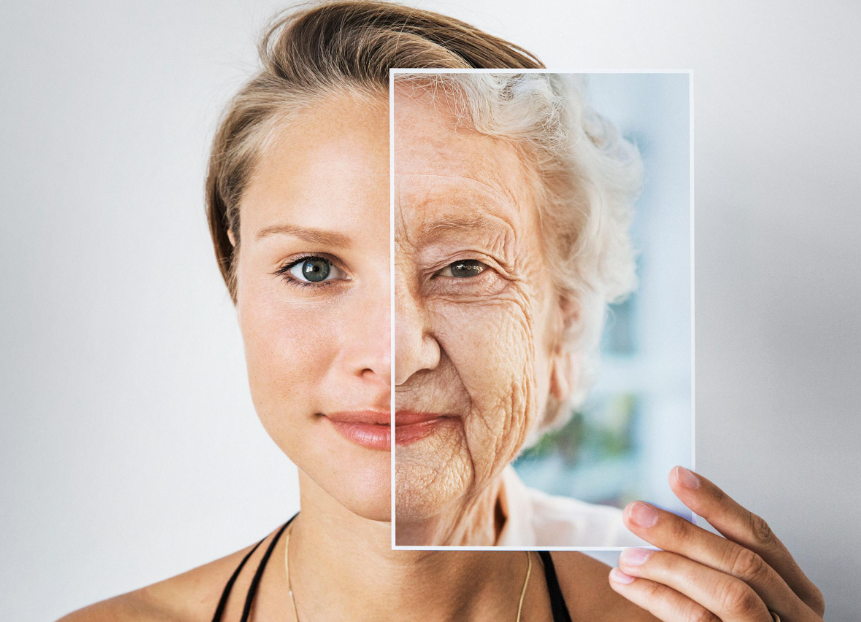
Aging accelerates at 36, 44 and 60. Here’s how to slow down the clock
Here’s How to Slow Down the Clock of Aging
Aging is an inevitable part of life, but how we age is a story we can help write. While there’s no magic potion to stop time, science has uncovered a range of strategies to slow down the biological clock and extend not just lifespan—but healthspan, the years of life lived in good health. From nutrition to mindset, here’s how you can take control of the aging process and feel younger, longer.
- Prioritize Sleep
Sleep is the foundation of cellular repair. During deep sleep, your body clears out toxins, repairs DNA damage, and regulates hormones linked to aging. Chronic sleep deprivation, on the other hand, accelerates the aging process, increasing the risk of heart disease, memory loss, and metabolic disorders. Aim for 7–9 hours of quality sleep each night, and maintain a regular sleep schedule—even on weekends.
- Eat for Longevity
A nutrient-dense, anti-inflammatory diet is one of the most powerful tools against aging. Emphasize:
Whole plant foods: Vegetables, fruits, legumes, nuts, and seeds provide antioxidants and phytonutrients that combat oxidative stress.
Healthy fats: Omega-3s from fish or flaxseed reduce inflammation and support brain health.
Minimized sugar and processed foods: These contribute to inflammation, insulin resistance, and accelerated skin aging.
Consider following dietary models like the Mediterranean diet, which is rich in plant foods, healthy fats, and lean proteins and has been linked to longer life and reduced risk of chronic diseases.
- Stay Physically Active
Exercise is a proven anti-aging elixir. Regular movement enhances cardiovascular health, preserves muscle mass, improves mood, and even supports brain function. Aim for a mix of:
Aerobic exercise: Walking, swimming, cycling
Strength training: To preserve muscle and bone density
Flexibility and balance: Yoga or tai chi to prevent falls and maintain mobility
Even 30 minutes of daily movement can make a measurable difference.
- Manage Stress Effectively
Chronic stress floods your body with cortisol, which accelerates aging at the cellular level. It contributes to inflammation, immune dysfunction, and poor sleep. Build daily stress-reducing habits such as:
Mindfulness meditation
Deep breathing exercises
Spending time in nature
Connecting with others
Prioritizing mental well-being isn’t just good for your mood—it’s vital for your longevity.
- Support Cellular Health
Recent breakthroughs in aging science have spotlighted ways to support your body at the cellular level. Interventions like intermittent fasting, caloric restriction, and compounds like resveratrol, NAD+ precursors, or senolytics (which help remove aging cells) show promising results in slowing the biological aging process. Consult with a healthcare provider before adding any supplements or making major dietary changes.
- Avoid Harmful Habits
Don’t smoke: Smoking drastically shortens lifespan and damages nearly every organ.
Limit alcohol: Excessive drinking accelerates liver aging and cognitive decline.
Sun protection: Use sunscreen daily to prevent skin aging and reduce the risk of cancer.
- Stay Social and Purpose-Driven
Strong social connections and a sense of purpose are linked to longer, healthier lives. People who engage with others and find meaning in their daily activities tend to have lower rates of depression, better immune function, and longer lifespans. Volunteer, join community groups, or pursue a hobby—whatever keeps your spirit engaged.
Final Thoughts
Aging gracefully isn’t about denying age but about enhancing the quality of your years. With the right habits, you can slow the clock, feel more vibrant, and live with greater vitality well into older age. Start small, stay consistent, and remember: it’s never too late to age better.



